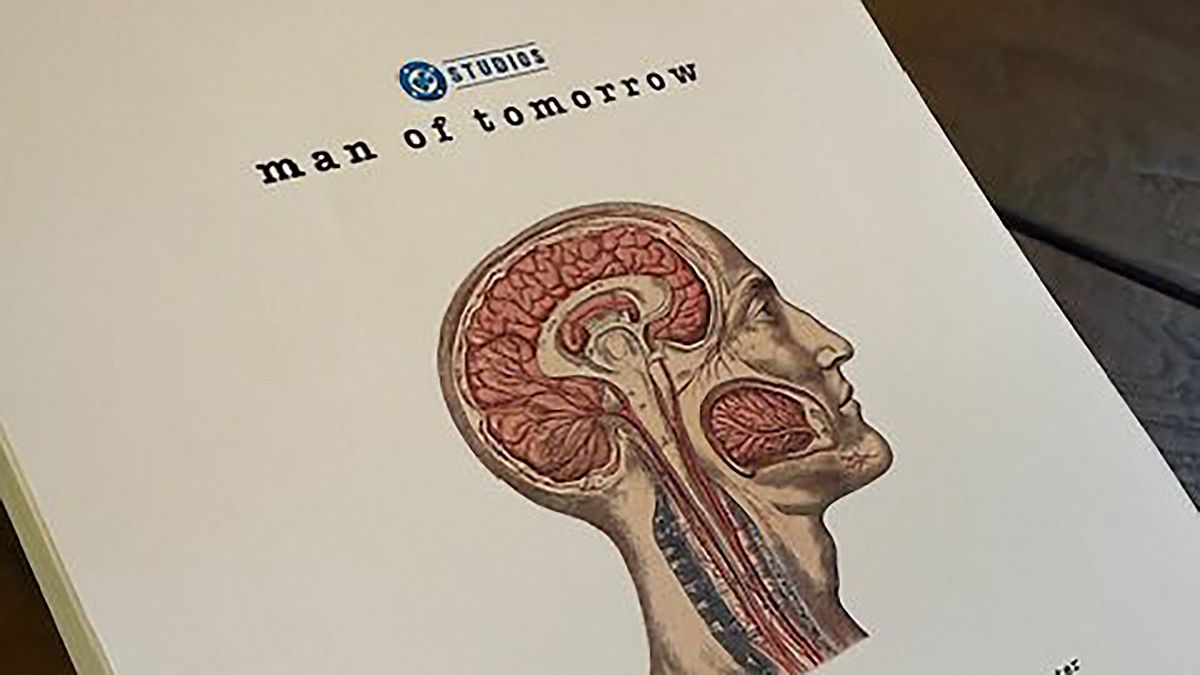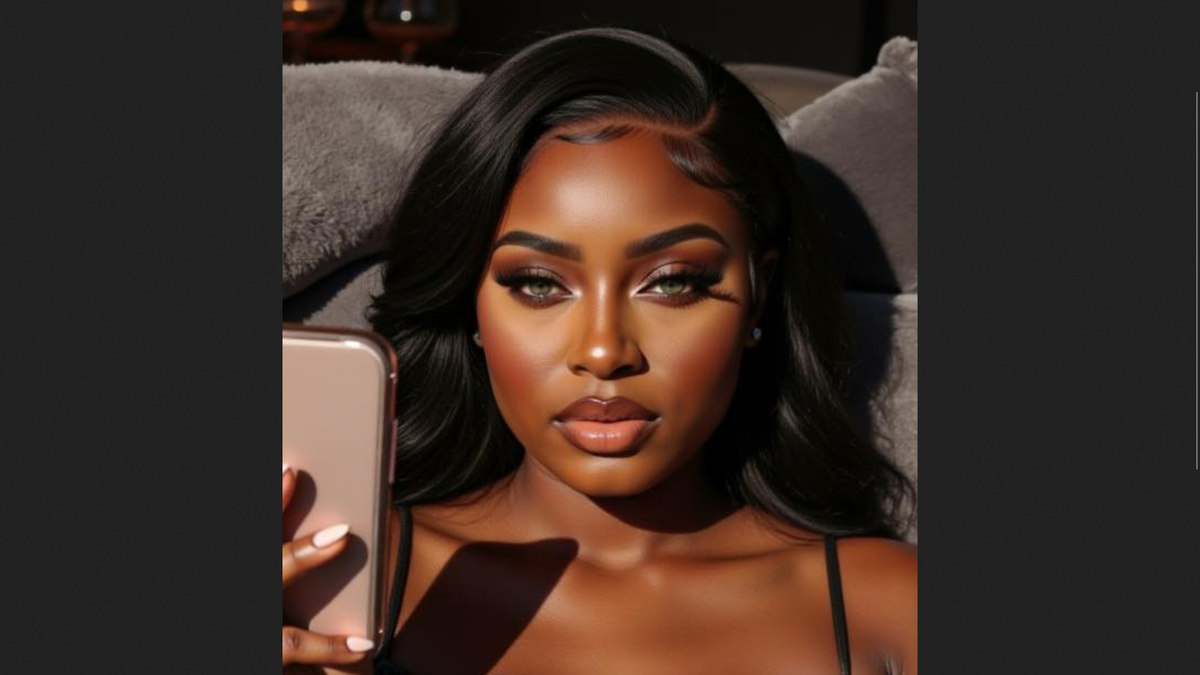Kat Abughazaleh knows how to create viral moments online. She’s an old pro, in fact, capable of posting clips of herself that can rack up millions of views. But engineering attention in the physical world is a decidedly different challenge—one that Abughazaleh was struggling to solve on an overcast afternoon in July.
The 26-year-old, who is running for Congress in Illinois, was sitting outside her campaign headquarters in Chicago, trying to connect with prospective voters during the area’s annual taco crawl. Some people were stopping to chat, but others hurried along in search of their next carnitas fix. On the internet, Abughazaleh can precision-edit a video to maximize eyeballs. On Clark Street, a busy thoroughfare that cuts across the city’s northeastern neighborhoods, she had to convince people cruising for excellent Mexican food that she was worth delaying their next bite.
That day, at least, the solution was simple: hot sauce. Abughazaleh got a taste for the stuff growing up in Texas and never let go. She hauled out the collection of bottles she keeps in her office—many of them sent by a supporter—and lined up over a dozen on a table for pedestrians to douse their tacos. Within minutes, locals sloshing to-go margaritas in plastic cups stopped to pepper her with questions, like her stance on organized labor (pro), what her “main issue” is (“antiauthoritarianism”), and her thoughts on contemporary sci-fi and fantasy (Red Rising is superior to A Song of Ice and Fire). It seemed every other person had a friend who was a big fan. Supporters in cars honked periodically. With help from a volunteer who translated, Abughazaleh explained to a Spanish-speaking family that her office doubles as a mutual aid hub, stocked with free pantry items and open to “everyone except ICE.” They took campaign stickers.
An older man with white whiskers and a “Make America Green Again” hat trotted over to the table after locking up his bike. Abughazaleh leaned forward, eager to engage on the issues. Before she got going, though, the man cut her off. “You have terrible posture,” he chided her, explaining that he was a physical therapist. “Pull up your breastbone. Shoulders back.”
Abughazaleh mimicked the man’s movements, squaring her shoulders in her loose jean jacket and doing a heroic job at not looking annoyed. She asked what issues he cares about as he inspected her bearing. Turns out, they had plenty to discuss: ICE raids, the Supreme Court’s perfidy. By the end of the conversation, the man was grabbing pamphlets and didn’t seem to notice that Abughazaleh had curled herself back into a more comfortable position.
Seeing her deal with even the most condescending of constituents, you wouldn’t know that this is Abughazaleh’s first time running for office. She is at the forefront of a wave of left-leaning young people who are eager to change what electoral politics looks like in the United States. They are fueled by frustration with the Democratic Party establishment, many of whom have been in office longer than their challengers have been alive—and seem to crave outspoken candidates like Abughazaleh, who, last week, was thrown to the ground by law enforcement while protesting an ICE detention center. (One of Abughazaleh’s first campaign slogans was “What if We Didn’t Suck?”) Run for Something, a political action committee that recruits young progressives to run in down-ballot races, has seen more than 61,000 people reach out about running for office in 2025, more than the first three years of Donald Trump’s first term combined, according to cofounder Amanda Litman.
In an intensely divided era, the Democratic Party is a uniting force: Both the left and the right agree that it does, in fact, suck. According to a poll from The Wall Street Journal this summer, 63 percent of surveyed voters have an unfavorable view of the party, its lowest rating since the Journal began its poll in 1989. While Abughazaleh’s odds of winning a seat in the House of Representatives are long, her candidacy is one truly of the moment, not just enmeshed with but fueled by the collision between internet culture and mainstream politics.
“I can’t remember a time when I wasn’t aware of politics,” Abughazaleh says. As a child, though, her political perspective was quite different. Her maternal grandmother, Taffy Goldsmith, was a longtime Republican operative in Dallas, so affinity for the Grand Old Party was woven into the family fabric. One of Abughazaleh’s favorite books as a kid was Lynne Cheney’s A for Abigail, a gift from Goldsmith. In high school, Abughazaleh moved with her parents to Tucson, Arizona. She started drifting left when she saw her classmates struggle financially.
“I had friends that were much smarter and more talented than me who couldn’t afford to go to college, even with a full ride, because that meant not being able to help take care of their families,” she says. “That was the first crack where I was like, maybe Ronald Reagan wasn’t right about everything.”
Her full conversion was gradual—she wrote an op-ed for her school paper in 2016 titled “Marco Rubio Is My Candidate”—but by the time she entered George Washington University, during Trump’s first term, she was a proud, protest-attending progressive. She started doing stand-up as a hobby, with Fox News as a frequent joke topic, inadvertently giving herself a crash course in public speaking. After graduating in 2020, she stayed in DC. She’d originally dreamed of a career as a foreign service officer or diplomat, but when a job as a researcher for the nonprofit conservative watchdog Media Matters for America came up, it seemed like the perfect fit. Now she’d be getting a paycheck for spending way too much time watching Fox News. It wasn’t a particularly big paycheck, so she bartended on the side; her first brush with online fame came not through Media Matters but when she went viral on Twitter in 2022 describing her experience having a drink spiked.
As a child, Abughazaleh taught herself video editing on Windows Movie Maker because she liked to make fan videos combining anime sequences and popular songs. She saw the potential in short-form video early on. “I realized that so many people get their information from video now, that if you want to reach more people, that’s where you need to do it,” she says. She started recording herself analyzing the antics of Fox News stars like Pete Hegseth and Tom Homan and putting the clips up on social media. She was good at it pretty much immediately. Compact and blonde, with round blue eyes, Abughazaleh is telegenic and quippy. She amassed hundreds of thousands of followers on platforms like TikTok, X, YouTube, and Instagram. She dove even further into working as an independent creator after Media Matters laid her off in the spring of 2024. The nonprofit’s finances had been drained by a legal battle with Elon Musk’s X, which sued Media Matters for defamation over a 2023 report on ads appearing next to pro-Nazi content.
Abughazaleh attended the Democratic National Convention in 2024 as part of the party’s creator outreach program, shortly after moving to Chicago. “Brat” summer was coming to a close, and even people who had wanted an open primary were trying to embrace Kamala Harris as a candidate. “As a Palestinian person, I probably wouldn’t have gone if Joe Biden was still the nominee,” she says. She’d been hopeful that Harris might address the genocide in Gaza.
During some of the convention, Abughazaleh sat in with protesters outside the United Center, livestreaming their efforts to get Palestinian voices onstage. The DNC refused their requests. It was the moment she became acutely disillusioned with the Democratic Party. “We slept on the concrete,” she says. “I got home that night—my whole body was covered in bruises, I’d been wearing the same clothes for like 36 hours—and I just started crying.”
Her frustration intensified after Trump took office and the so-called Department of Government Efficiency started slashing federal programs with Elon Musk’s help; she was appalled by Democrats’ lack of action. “I just couldn’t watch it anymore,” she says. “I thought, fuck it, I’m going to run.”
Abughazaleh launched her campaign for Congress this past March in a roughly two-minute speech posted on social media. “Donald Trump and Elon Musk are dismantling our country piece by piece, and so many Democrats seem content to just sit back and let them,” she began, her cadence inflected with the peppy tone of a veteran YouTuber as she pledged to properly fight the MAGA movement. It was a splashy and very DIY political debut.
She was challenging Jan Schakowsky, an 81-year-old who had been representing Illinois’ Ninth District since 1999. Abughazaleh’s candidacy was framed in the media as the next front in the war between young firebrand progressives and older, establishment Democrats who weren’t doing enough to stand up to Trump—in no small part because that’s how Abughazaleh talked about it. From the start, she sought to frame her campaign in national terms, in part as a way to explain why she sought to leapfrog from TikTok to Capitol Hill. “There’s so many incredible local and state officials here. They don’t need my experience. My experience is better used fighting actual fascists,” she tells me. “All the people I used to cover, they don’t run Illinois. They run the country, and I’m the only one that’s gone toe-to-toe with them.”
Immediately, Abughazaleh’s campaign garnered far more attention than most Congressional efforts, especially primaries in solid-blue territory like the Ninth. She had zero governing experience, had only recently moved to Chicago, and didn’t even yet live in the district she is trying to represent—but she was very good at pitching herself on the internet. A rush of donations poured in, including contributions from Mark Ruffalo and Andrew Yang. Abughazaleh’s campaign rejects corporate donations on principle and instead relies on individual supporters. So far, she has raised more than her competitors—upwards of $1 million, with the average donation hovering around $32. Bluesky, she says, is her biggest fundraising platform by far.
Abughazaleh is a distinctly contemporary type of celebrity politician. She doesn’t have the widespread name recognition of a more mainstream pundit like Rachel Maddow, but the people who do know her are really paying attention. This can be both a blessing and a curse. Abughazaleh’s campaign relies on the strength of her online fandom to raise funds and awareness, and she intends to mobilize as many of those people as possible to volunteer and vote. Her heightened profile online, though, means that her moves are closely dissected.
Early in the campaign, Abughazaleh’s relationship with former reporter Ben Collins, who became CEO of the Chicago-based satirical newspaper The Onion last year, came under the microscope. When the Chicago Tribune reported that the couple had rented an apartment for $4,000 a month when they first arrived in the city, it was a mini scandal. How dare these coastal elites splash out so extravagantly while Abughazaleh fashioned herself a woman of the people! (She acknowledges that Collins provides her a financial cushion; he’s also one of the campaign’s largest individual donors.)
The pair have since moved to a modest walk-up near Abughazaleh’s office. In an effort to prove that she’s not rich, Abughazaleh posted a photo of what she said was her checking account to social media: $4,947. She demonetized her social accounts when she started her run for office, so her only income comes from a Patreon account she set up solely to sell subscriptions for photographs of her orange cat, Heater. It brings in around $650 a month.
Meanwhile, she’s trying to turn scrutiny from her ideological foes into an advantage. On the campaign trail, she often brings up how she was deposed by lawyers representing Musk’s X Corp. last fall as part of the Media Matters lawsuit. After far-right Trump confidante Laura Loomer ranted about Abughazaleh on X, exhorting her to “cover her cooch,” referring to her as a “communist,” and implying she was a sex worker, Abughazaleh incorporated the post into a call for donations. In fact, Abughazaleh regularly frames the negative attention as a major selling point for her candidacy. She takes every available opportunity to convey that she’s not just willing but eager to tussle with her enemies. In May, she posted a video titled “Republicans Can’t Stop Being Weird About Me.” “I’m really pissing off all the right people,” she says with a smile.
Abughazaleh is good at this kind of messaging, promoting herself in opposition to a rival. But this spring, the original storyline propelling her campaign changed drastically when Jan Schakowsky announced that after 14 terms in Congress, she would not be running again. Bye-bye, incumbent vs. upstart. The new dynamics within the race would produce a much messier narrative.
If the first phase of Abughazaleh’s campaign was framed as a showdown between the new and old guards, the race for the Ninth District today looks more like a battle royale.
Since Schakowsky bowed out of the race, a dozen more Democrats have jumped into the fray (and some have already jumped back out). There’s another Gen Z candidate, 27-year-old Bushra Amiwala, who was at one point the youngest Muslim elected official in the United States. Then there’s 36-year-old Illinois state representative Hoan Huynh, who ran a winning underdog campaign back in 2023, as well as 42-year-old Illinois state senator Mike Simmons, who is both the first Ethiopian American member and the first openly gay member of the Illinois State Senate. While they’re not getting invited onto national cable news shows like Abughazaleh is, they all have enthusiastic volunteers—not to mention local governing experience and ties to the community that Abughazaleh lacks.
Another competitor has proven openly hostile. Bethany Johnson, a trans woman who is also running on a progressive platform, sees Abughazaleh as an enemy. According to Johnson, Abughazaleh supporters on Bluesky made cruel jokes at her expense, treatment that amounted to harassment. Johnson responded by repeatedly showing up at Abughazaleh’s office with protest signs, roller-skating back and forth in her underwear, and deliberately making herself vomit outside its doors. Abughazaleh filed a “stalking no contact” court order against Johnson to get her to stop.
But Abughazaleh’s biggest headache is Daniel Biss. A slender, energetic 48-year-old with a fantastic head of silvery hair, Biss is a local progressive sweetheart. During his time as mayor, Evanston became the first US city to offer reparations to Black residents. “Let’s take on the billionaire class together,” his Instagram bio reads. He has already nabbed endorsements from US senator Elizabeth Warren and several unions. In a poll commissioned by Abughazaleh’s campaign, he emerged as the front-runner.
And yet, when I asked Abughazaleh this summer whether she was confident that she’d win, she answered without hesitating: “Extremely.” We were sitting on a couch inside her office, surrounded by hand-painted signs made by volunteers and shelves of free items on offer to the community, from books to baby wipes. She didn’t want to discuss her opponents.
“We have the momentum,” she continued. The campaign was, indeed, on a roll—donations keep pouring in—and she scored her first major endorsement at the end of July from US representative Ro Khanna of California, who called her “the absolute best that the Democratic party has to offer.”
She’s working diligently on her ground game, too, often hitting three to six campaign stops a day. She hired a fellow Gen Z campaign manager, Sam Weinberg, who lived in Evanston as a child; they’re focusing on a series of mutual-aid-oriented programs and events, from picking up garbage at the lakefront and local parks to parties where the cost of entry was tampons, boxes of pads, or supplies for the headquarters’ food bank. This August, they handed out hundreds of backpacks filled with school supplies to local children. The reception to this analog politicking has been positive. While visiting her office this summer, I saw people coming in to drop off donations—one guy arrived with a frankly confusing number of computer monitors—and to pick up supplies like tampons and baby food.
Abughazaleh has been compared to New York mayoral primary winner Zohran Mamdani, another young, charismatic leftist with a flair for short-form video. Mamdani’s success stemmed from much more than just his internet game, though—he’s a lifelong New Yorker who was already a state lawmaker; plus, his opponent was Andrew Cuomo, a true foil with a troubled campaign. In some ways, Abughazaleh’s candidacy more closely resembles that of Deja Foxx, another Gen Z content creator who just lost big in the Arizona primary. Like Abughazaleh, Foxx had to go up against a fellow progressive. It’s clear that Abughazaleh is trying to draw lessons from campaigns like Mamdani’s, as she focuses on meeting as many constituents as possible in person and pays specific attention to people who might not otherwise vote at all.
One afternoon, her headquarters was filled with around 40 people who’d shown up to be assigned to canvass blocks this fall. (More than 6,000 people have signed up to volunteer in total.) Abughazaleh’s strategy relies on motivating people who feel alienated from mainstream politics, and many volunteers looked more likely to have lurked in an online forum on the works of Peter Kropotkin than to have previously helped out with a Democrat’s campaign.
I sat with two men who were organizing merch, including stickers that said “Sluts Vote (for Kat).” They were both fans who followed her on social media—but here they were, in the flesh. Neither had worked on a campaign before, and they both appreciated Abughazaleh’s emphasis on mutual aid as a way to participate in politics without feeling gross. “I wanted to do something with my pain and anger that wasn’t destructive,” one told me as he sliced through a sheet of the stickers with scissors, arranging them into neat piles.
There have been missteps too. In August, the same week that Bushra Amiwala held a prayer service for some of the Democrats trying to block redistricting in Texas, and Daniel Biss marched in a protest against Trump with the same Texas politicians, and Hoan Huynh scored an endorsement from one of them, Abughazaleh spoke at a bizarre, sparsely attended protest against a Popeye’s chicken restaurant coming to Evanston organized by a group associated with alternative health businesses. It was her first big whiff of the election cycle.
Why would an aspiring member of Congress meddle in a NIMBYish dispute meant for a local city council? She’d gotten involved, she said, when she’d heard that a payday loan business might potentially be part of the space, but still received pushback, especially since it doesn’t appear like that’s the case. (Sample Bluesky comment: “I’m a supporter and this isn’t a deal breaker or anything, but in this case the critics are right.”) Another one of her opponents, state senator Laura Fine, pointed out on social media that Illinois legislators had already passed laws making it difficult to operate payday-loan businesses. The implied message: If Abughazaleh knew more of the district’s backstory, she wouldn’t have made this mistake. And, well, that’s probably correct.
Abughazaleh’s viability as a candidate has always hinged on the idea that this race will not be determined by familiarity with Illinois legislative history. She was never going to be the first choice for voters who above all else value deep ties to the area. (She might be last.) Same with governing experience. In a race stacked with progressives, Abughazaleh says that her background interrogating the online MAGA media ecosystem makes her best suited to thwart them in Congress. “I understand far-right narratives and conspiracy theories in a way that many of our lawmakers do not,” Abughazaleh says. “I’m the most effective communicator.”
It’s a theory of politics that fuses online performance with real-world experience, a wager that the candidate most effectively fighting the right wing on the internet is the best one to combat it in person. She’s betting that voters, above all else, want a brawler.
Let us know what you think about this article. Submit a letter to the editor at [email protected].

 2 hours ago
8
2 hours ago
8







 English (US) ·
English (US) ·